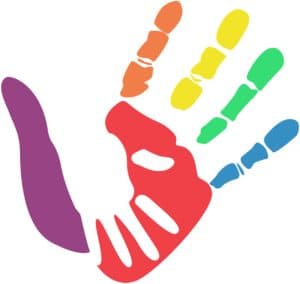Autism is a name of a neurological disorder. It affects how people converse, interrelate, and practice information. It usually appears in the early childhood phase and can vary in intensity. Persons with Autism may have trouble with social skills, such as making eye contact or perceiving emotions. Such individuals can also show recurring behaviors or have extreme interests in particular topics.
In simple words, Autism is a spectrum in which people can develop diverse strengths and challenges. While there is no therapy to treat it, yet early intervention can assist individuals with Autism to prosper and live fulfilling lives. It’s significant to consider that each individual with Autism is distinctive and deserves appreciation and acceptance.
When talking about sensitive topics such as race and injustice with children, it’s imperative to keep up clarity and simplicity. Children with Autism need a more straightforward and moderate approach. In this guide, we will discover how to correspond with them about these crucial issues efficiently.
Start with Openness
Start by creating an open and friendly environment. Support your child to communicate themselves. Use language that brings comfort and conviction. By saying, “I am here for you to listen and help you understand,” immensely impact in a positive way.
Use Visual Aids
Visual aids can make complex concepts more accessible. Show images, books, tutorials, and videos that portray diverse races and people standing up for impartiality and justice. This will assist children in better grasping the topic.
Keep It Simple
Prefer to use simple and plain language in your conversations. Explain that people have various skin colors but are and should be treated equally. Exhibit fair and unbiased behavior.
Talk About Feelings
Chat about sentiments and emotions related to injustice and inequality. Ask, “How does it make you feel when someone is treated unjustly?” Give them the confidence to express their thoughts.
Highlight Similarities
Highlight similarities among people, such as collective interests and hobbies. Say, “Just like you like painting, others like it too, regardless of skin color.”
Use Real-Life Examples
Refer to real-life heroes who struggled for justice. Tell them about heroes and leaders like Martin Luther and Rosa Parks. Share their stories and elucidate their importance.
Discuss Stereotypes
Elucidate that stereotypes are not precise. Say, “It’s incorrect to think things about someone just because of how they appear.” Persuade critical thinking.
Teach Empathy
Help your child learn to see humankind from a person’s point of view. Say, “Imagine how you’d feel if you were treated wrongly and unjustly.” Endorse compassion and understanding.
Answer Questions Honestly
Answer your child’s queries honestly and age-appropriately. Refrain from making things up or oversimplifying. Say, “That’s a brilliant question. Let’s converse about it.”
Promote Kindness
Highlight the value of treating others with respect and care. Say, “We can make this world a better place to live just by being good to everyone.”
Role-Playing
Involve in healthy activities like role-playing to assist your child in comprehending different perspectives. Enact different scenarios that involve equality and injustice.
Stay Patient
Children with Autism may need some additional time to gather information. Be tolerant and give them space to understand the concepts.
Encourage Critical Thinking
Facilitate your child to think critically and decisively about the media and information they encounter. Ask, “Do you think this is a reasonable demonstration?”
Address Current Events
At a suitable age, talk about current events regarding multiple races and injustices. Supply context and elucidate misunderstandings.
Celebrate Diversity
Embrace diversity in your daily life. Go to cultural events, consume different foods, and discover various traditions. Discuss that variety is the spice of life!
Communicating with children with Autism about race and prejudice is a significant responsibility. By producing a warm and open environment, using primary and clear-cut language, and teaching compassion, you can assist them in comprehending these critical concerns. Remember that fortitude and honesty are crucial to cultivating their understanding and promoting a fair and inclusive world.









